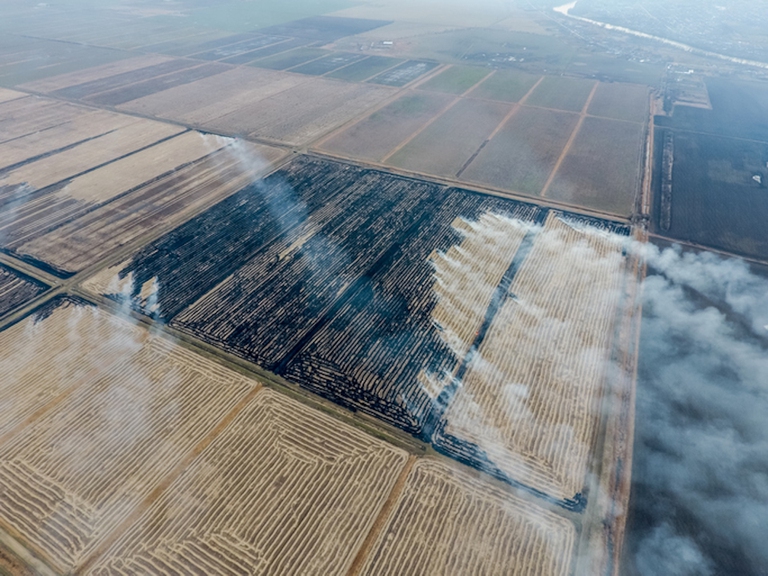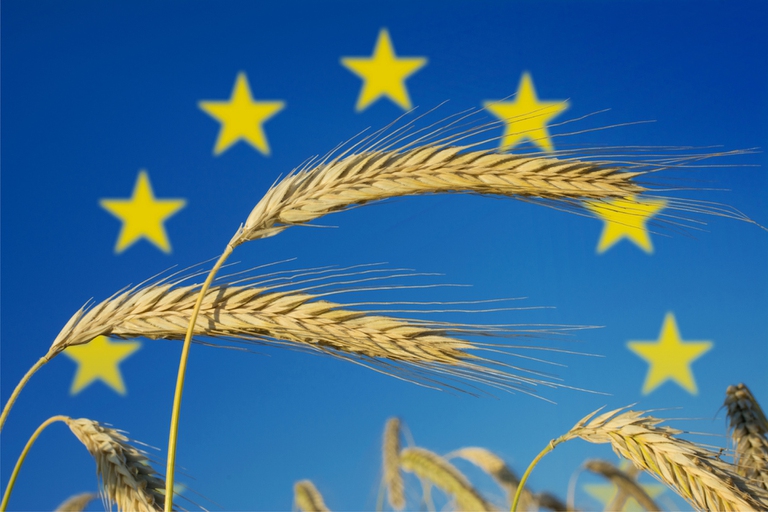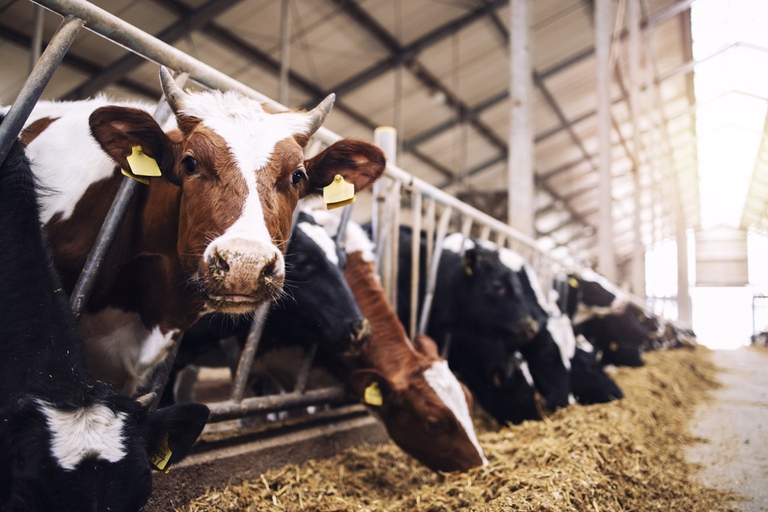https://www.lifegate.it/agricoltura-green-deal-pac-programmi-elezioni-europee
- |
- Agriculture is a crucial sector for the European Union:through the CAP, a third of the EU budget is allocated to it.
- The recent farmers' protests have highlighted various issues and led to steps backwards on the environmental objectives of the Green Deal.
- The parties are divided between those who consider sustainability too ideological and those who maintain that, without protecting nature, there can be no agriculture.
Food safety for a growing population, climate changes, loss of biodiversity, protection of the environment and its resources:they are multiple and crucial challenges that theagriculture is called upon today to build a healthy food system for people and the planet.Currently, in the world, agriculture is responsible for a third of global emissions (largely caused by chemicals and intensive farming) and at the same time is increasingly threatened by extreme climate events;Yes wastes a third of the food produced in the world, while further 3 billion people do not have access to a healthy diet.

European agriculture in the framework of the Green deal and the CAP
In 2019, in the European Union, the drafting of the Green deal, the green pact for achieving climate neutrality by 2050, has put agriculture at the center of ecological transition with the “From producer to consumer” strategy which has among its objectives that of guaranteeing nutritious foods in sufficient quantities and at affordable prices, halve the use of pesticides and fertilizers, increase the cultivated area with organic method, reduce the food losses and waste, improve the animal welfare.

The new one was approved in 2021 Common agricultural policy (Pac) in force for the years 2023-2027 with the intent, among other things, of strengthen the contribution of agriculture to environmental and climate objectives of the European Union by introducing some environmental constraints and allocating the 25 percent of the funds to small farmers with ambitious programs from the point of view of conservation of ecosystems.Not enough improvements for environmentalists who at the time underlined how most of the resources would have been distributed for the benefit of anyway large agroindustrial groups and gods intensive farming, without environmental constraints and with the risk of greenwashing. We remind you that approximately a third of the EU budget since agriculture, in addition to being a fundamental sector for Europe, is among the least profitable, among the most subject to climatic conditions and among the first called to protect the environment.
Farmers' protests and European Parliament votes on environmental objectives, pesticides, GMOs
In recent months the "agricultural question" has jumped to the top of the European agenda following the farmers' protests who with their tractors besieged the streets and buildings of power throughout Europe demonstrating a discomfort that is no longer sustainable and generated mainly by too much bureaucracy, come on low profits, fromincrease in the price of fuel and fertilizers also due to war conflicts, from low-cost competition from products from non-EU countries.
Very quickly, on 13 May, on the proposal of the European Commission and with the approval of the European Parliament, the European Council has chosen to respond to farmers' requests with one targeted reform of the CAP, but they were the ones who paid the price environmental objectives which had made it “greener”: no more obligation to leave part of the land fallow to favor the soil and biodiversity, the possibility of carrying out the crop diversification instead of rotation, more flexibility for member countries on practices for soil protection.

Still in the wake of the tractor protests, last February, the European Commission blocked Sur, the proposed regulation on pesticides, which was aimed at 50 percent reduction in the use of pesticides by 2030, proposal that it had already been rejected by the European Parliament in November, to the satisfaction of farmers and the disbelief of environmentalists.Still on the subject of pesticides, in December, the same Commission decided to extend the marketing authorization for ten years glyphosate-based products, one of the most used herbicides in the world, classified as a probable carcinogen by the International Agency for Research on Cancer (Iarc).
Also in February, the European Parliament gave the green light to the Commission's proposal on deregulation of new GMOs (assisted evolution techniques) while introducing obligations on labeling and traceability given the growing amount of scientific literature on the potentially negative effects of tea, the impact on organic and non-GMO agriculture and the opposition of the majority of Italian and European citizens.
Nature restoration law, emissions directive and soil directive
Again in February, the European Parliament adopted the law on nature restoration (Nature restoration law), the first of its kind, with the aim of restore 20 percent of marine and terrestrial areas of the Unionby 2030 and all ecosystems degraded by 2050 with the aim of counteracting the loss of biodiversity, increasing resilience and fighting climate change.By law they were however excluding agrosystems, eliminating the obligation to reach the targets for improving the conservation status of birds and butterflies in agricultural environments, as well as maintaining at least 10 percent of natural elements in agroecosystems.
In November 2023, the European Parliament and Council reached an agreement on the revision of the industrial emissions directive agreeing that the cattle farms remained excluded from the scope of the directive, but that the issue be re-evaluated by the Commission in 2026.

Last April, the Parliament he adopted, first reading, his position on the European Commission's proposal for a Soil Monitoring Act against desertification, the erosion of agricultural soils (caused above all by excess processing) and for the consumption of soil.
Agriculture:what the political groups candidate for the European elections think
On 8 and 9 June with the European elections the new Parliament will be elected:on the topic of agriculture there is one political narrative which prioritizes food safety and the needs of farmers over environmental protection;on the other hand there are those who argue that, without protecting nature, there is no future for agriculture.We analyzed what the posters of political groups that make up the European Parliament regarding the Green Deal, CAP, agricultural transition.
European People's Party – Forza Italia:“Transition together with businesses and biotechnologies against the climate crisis”
“Farmers and their businesses make the face of our rural Europe unique.We are proud of them and we are at their side”, reads the manifesto of European People's Party (EPP), which currently has a majority in the European Parliament and with which it is associated Forza Italia, arguing how “climate protection, biodiversity and sustainable landscape conservation can only be achieved with and not against farmers”.According to the party, to reach the goal of climate neutrality by 2050, theEurope must not deindustrialise but, on the contrary, it must ensure that the transformation to zero CO2 emissions can be achieved successfully through businesses.“It is important to support our businesses – especially SMEs, farmers and fishermen – financially in the transition and to find the best solutions to reduce global emissions.”And again:“We defend the principle of technological neutrality as well as a policy based on the creation of incentives for business and industry.Especially in the agriculture and fisheries sectors, ambitious goals should be achieved with technological innovations, not with bans."For the party the adoption of new biotechnologies in agriculture they can be effective tools against climate-related risks.
Group of European Conservatives and Reformists – Brothers of Italy:“Review of the CAP and Green deal against unbridled green ideology”
Also the Group of European Conservatives and Reformists (Ecr), to which it is associated Brothers of Italy, declares himself alongside farmers and fishermen:“We must harness the power of science to guide agricultural policy and reject unbridled green ideology.We support a balanced approach that respects the vital role of our farmers while promoting sustainability initiatives."The party declares itself firmly committed to conducting a in-depth review of both the current CAP that of Farm to fork strategy:“We have had enough of CAP bureaucracy and will make efficiency our top priority.Our goal is to promote environmental and social sustainability while supporting our farmers, their families and rural communities.The party proposes on the Geen deal an opposite approach to that promoted by the EU in the last five years, which is what defines a “real” sustainability:“We will support a more balanced and localized climate strategy that does not forget ordinary people and prioritizes socioeconomic well-being.”
Identity and democracy – League:“Pac returns income support, not compensation for the costs of environmental reconversion”
In the manifesto of Identity and democracy, into which the Alloy, there are no references to agriculture.We report the content of the electoral program of the League which declares itself "determined to cancel the unrealistic objectives that have been assigned to the first sector by the Green deal" and to "defend the possibility of using defense tools in the field to combat plant pathologies".For the League, regarding the CAP it is necessary to "overcome the cumbersome and bureaucratic system of eco-schemes" to interpret the funds as "income support" and not as "compensation for the costs of environmental reconversion".
Party of European Socialists and Democrats – Democratic Party:“Environmental sustainability inseparable from social justice”
For the group of social democrats (S&D), the currently second largest in Parliament and which is associated with Democratic Party, the environmental sustainability cannot ignore it social justice.“We support a just transition that balances the need to reduce CO2 emissions with that of protecting jobs and ensuring social equity.This approach includes investing in sustainable technologies and industries, supporting workers and communities affected by the transition, as well as promoting more democratic and participatory decision-making." On the EU's common agricultural policy and common fisheries policy, the party is committed to ensuring that they become important climate and sustainability tools, considers the introduction of a key measure zero pollution strategy for quality of air and water, which aims to reduce the environmental impact of human activities, is a priority soil monitoring with the aim of restore all soils in the EU by 2050.
Greens – Green and Left Alliance:fair prices, no GMOs and pesticides, animal welfare
For the group of Greens/European Free Alliance, which is associated withGreen and left alliance, the conservation of biodiversity it is fundamental to the food production.The key points of the manifesto for the agricultural sector are:take a third of the EU budget spent today on industrial agriculture and invest instead insustainable agriculture;make healthy food more accessible to fair prices for both consumers and producers;keep the children gmo and i dangerous pesticides like glyphosate out of the fields;end food speculation that forces people to go hungry while traders make record profits;protection of animal welfare and the call for an end to exploitative practices. For the group, the alternatives to GMOs and pesticides are agroecological practices which have already shown results such as integrated pest management with crop rotation and the non-chemical approach to weed management.Also pay attention to animal welfare:the party had obtained the creation of a commission of inquiry to investigate cases of cruelty during the transport of animals in Europe and, following that investigation, the Commission has proposed new rules which will be negotiated after the European elections.
Renew Europe – Action, +Europa, Italia Viva:“Agriculture and sustainability are not in competition”
“We believe that our ambition to care for our natural environment by reducing pollution and restoring nature aligns with our ambition to create a sustainable food system.For us these objectives are not in competition with each other":this is what he proclaims RenewEurope of which they are part, for Italy, Action, +Europe, Italia Viva.The MEP group has launched a action plan for sustainable, competitive and fairly remunerated European agriculture.The document defines a series of short-term measures to help farmers cope with shocks resulting from global trade, rising energy prices and administrative burdens.It also indicates the way forward in some aspects of long-term concern, such as the capacity of the current common agricultural policy to respond to climate change and market crises, the fair distribution of added value within the food supply chain and the EU's efforts to resolve trade disputes with third countries.The group is clear about "the urgency of easing the burdens on farmers and businesses, while remaining aligned with the general objectives of the Green deal".
European Left – Italian Left:support for sustainable agriculture, incentives for the transition to plant-based production and diets
For the group of European left, of which the Italian left, “lThe CAP must be transformed by progressively eliminating its system of allocating funds by area and redirecting funds towards sustainable, environmentally friendly and labour-intensive agriculture, with added value and social equity and justice through agriculture”.The group proposes the remuneration of ecosystem services to small landowners to ensure the conservation of biodiversity and compensate for the disadvantages of permitted uses, the support for social cooperatives, short production chains to reduce emissions, fair prices for producers and consumers regulating the margins of large-scale retail trade, incentives and awareness programs for transition to plant-based production and diets, the guarantee of a basket of fruit and vegetables with high nutritional content, seasonal and locally produced, with controlled price and VAT zero, the reduction in the import of soy and corn from the South of the world for animal feed.
Non-members – 5 Star Movement:artisanal fishing, CAP simplification, no pesticides and GMOs, innovation
The 5 Star Movement belongs to the group of parties that do not want to join any political group.The party program proposes among other things:support for artisanal fishing as the only fishing system which, due to its characteristics, is able to guarantee respect for the marine ecosystem; simplification and flexibility of the CAP with support for farmers who implement sustainable practices; fight against pesticides and GMOs, conflict with trade agreements which disadvantage European farmers, protection of product prices at origin, bioclimatic greenhouses, agrovoltaics and artificial intelligence to innovate the sector.
In view of the European elections, here is ours complete guide to voting et al functioning of the European Parliament.
